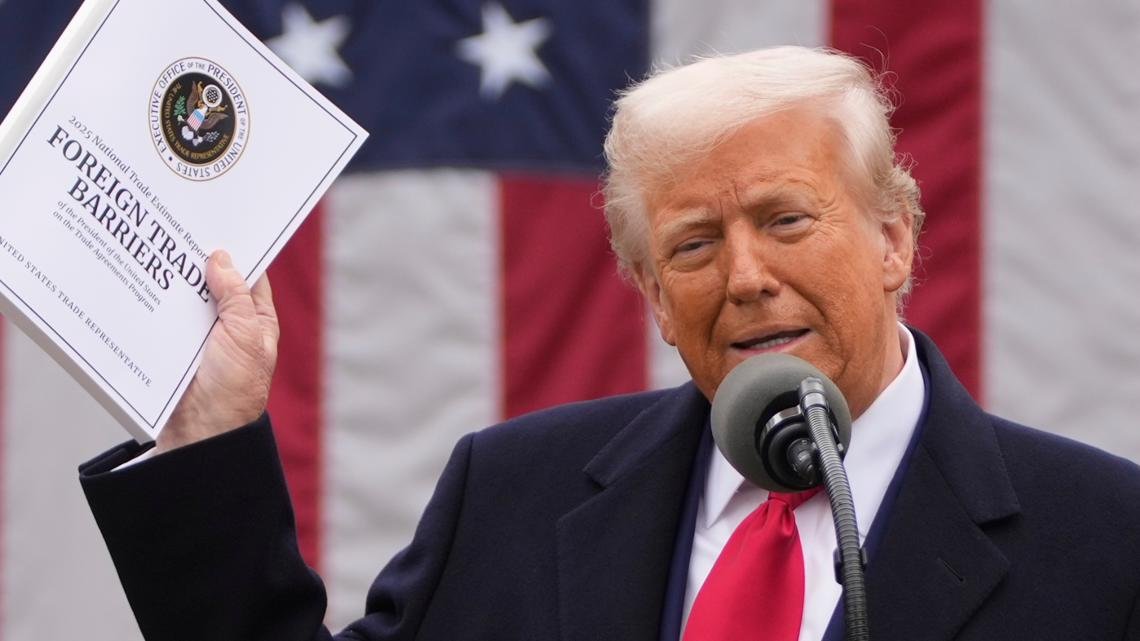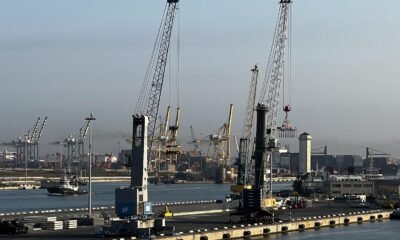Business
Global Unease: World Responds to US Imposition of ‘Reciprocal’ Tariffs

WASHINGTON, D.C. — In a bold economic move, President Donald Trump unveiled a series of new tariffs on Wednesday, sparking immediate global reactions. The tariffs, which Trump’s administration refers to as “reciprocal tariffs” and range from 10% to 49%, aim to address perceived trade imbalances.
During the announcement, Trump asserted, “Taxpayers have been ripped off for more than 50 years,” promising a return of jobs and factories to American soil. He framed the tariffs as critical to national security, claiming they protect “our very way of life.”
Following the announcement, the British government issued a measured response, emphasizing the U.S. as the U.K.’s closest ally. Business Secretary Jonathan Reynolds expressed hope for a trade deal to lessen the impact of the 10% tariffs on British goods, stating, “Nobody wants a trade war.”
Italy’s Premier, Giorgia Meloni, criticized the new 20% tariffs on the European Union as “wrong,” arguing they would not benefit either side. She urged for negotiations to avoid a conflict that could weaken Western economic standing.
In Latin America, Brazil’s government is contemplating action before the World Trade Organization over the tariffs. Unanimously, Brazil’s Congress passed legislation allowing retaliation against countries imposing tariffs on Brazilian exports.
Australia’s Prime Minister, Anthony Albanese, labeled U.S. tariffs on his country as unwarranted yet stated there would be no retaliation. He highlighted the contradiction in Trump’s claims about reciprocity, pointing out that a true reciprocal tariff would be zero.
Meanwhile, the unexpected 29% tariff on Norfolk Island, a small Australian territory, perplexed local officials, who noted they do not export to the U.S. New Zealand’s Trade Minister, Todd McClay, also contended that the U.S. figures were inaccurate, reinforcing that New Zealand operates under a low tariff regime.
Mexico and Canada currently remain untouched by the latest tariffs due to existing trade agreements. However, the previously announced 25% tariffs on auto imports are set to take effect. Mexico’s President Claudia Sheinbaum indicated a cautious approach, awaiting clarity on the implications for her country.
As Trump detailed the tariffs, he underscored the necessity of protecting American economic interests against what he deemed “unrelenting economic warfare.” Chilean President Gabriel Boric warned that such tariff measures could challenge established international trade principles, while Colombia’s President Gustavo Petro declared the era of neoliberalism and free-trade policies marked as “dead.”
Analysts warn that an escalated trade war offers little benefit for any party involved. Matteo Villa, a senior analyst in Italy, remarked that Europe faces a significant dilemma, with the possibility that any retaliation would inflict more damage on European economies reliant on U.S. exports.
Global reactions continue to evolve as countries assess the ramifications of Trump’s tariffs. The potential for negotiations remains uncertain, but the immediate impact on international relations and trade dynamics is undeniable.
AP journalists contributed to this story.


















